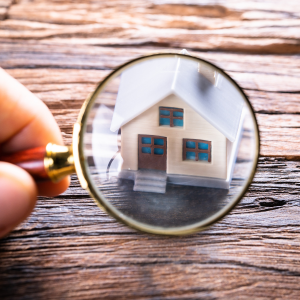
At Henry Home Buyer, we understand that waiting can be stressful. We guide you through each step, from appraisal to closing, so you know what to expect and feel confident throughout the process.
Understanding the Appraisal Process in Minnesota
Understanding the crucial procedures and their deadlines, particularly the appraisal process, is essential for navigating the Minnesota home-buying experience. An appraisal is necessary because it provides a valuation of the property on which the lender can base the loan amount sought. Knowing how the appraisal process works might help you anticipate potential delays and determine when you can close. This tutorial discusses the necessity of appraisals in the closing process, as well as how long you can close in Minnesota after an appraisal.
Importance of Appraisals in the Closing Timeline
In the realm of real estate, a home appraisal is more than just a normal step; it’s the most important stage that might change the closing date. Appraisals make sure that the loan amount is backed up by the property’s market worth. An appraisal is a way for the lender to see if the investment is worth the property.
Like an inspection, an appraisal looks at a number of things to find out how much a house is really worth, such as its location, similar homes, and the condition of the property right now. The home appraisal is an important part of the real estate transaction. It is done by a licensed appraiser.
This document tells you how much a house is worth by looking at its sales history, comparing it to other houses in the neighborhood, and taking into account any changes that have been made to the house. This appraisal not only tells the lender what the property is worth, but it can also help decide if the sale goes through as intended.
When working with lenders, it’s important to have this appraisal on hand so that the closing doesn’t get delayed for no reason. Sometimes, when the appraisal process is over, the parties have to renegotiate, especially if the appraisal comes in lower than the agreed-upon sale price. If this happens, sellers may have to drop the price to match the appraisal, or purchasers may have to pay the difference out of their own pockets. This would change how the sale was originally planned to go.
Some ways to avoid delays in the appraisal process are to keep in touch with the real estate professional, stay up to date on the appraisal paperwork, and set realistic time expectations. After the assessment, how quickly the closing process goes depends on how open and ready everyone is. Being proactive is the best way to avoid long closing times because assessment problems might stop the deal from going through.
How Long After an Appraisal Can You Close?
Many people who want to buy a home can’t wait for the appraisal to be over so they can finally close on their new home. A lot of the time, people want to know, “How long after an appraisal can you close?” In Minnesota, the answer depends on a number of factors, but in general, you can expect to close about one to two weeks after the appraisal, as long as everything goes well.
The lender gets the results of the appraisal after it is done. The lender will move on with finalizing the loan documents if the appraisal shows that the initial loan request is still valid. But you should think about how long things might take if there are differences of opinion or problems with the appraisal’s results. If the appraisal doesn’t match the agreed-upon sale price, you may have to negotiate more, which could make the closing take longer.
The assessment also plays a very important function throughout the closing disclosure phase. The closing disclosure is a long paper that the buyer gets that lists the loan terms, monthly mortgage payments, total fees, and other expenditures. The lender needs to look over the appraisal before this paperwork can be finished. The law says that there must be a three-day waiting period after the closing disclosure is sent out before the official closing can happen. This gives the buyer enough time to look over the terms.
Also, the time between the appraisal and closing could be affected by how ready the buyer and seller are to go forward, how quickly the banks involved work, and any possible delays in signing and processing the final paperwork. Keeping in touch with your real estate professional, lender, and legal counsel all the time might help clear up these questions.
Finally, even if the completion of an appraisal may mean that the closing is coming up soon, it’s important to keep flexible and expect some level of uncertainty. Be ready for unexpected delays and be ready to deal with any problems quickly to stay on track. Keeping everyone up to date, making sure that the closing disclosure matches all the paperwork, and getting the loan approved on schedule can help you smoothly close on your house.
You can typically close on a home one to two weeks after the appraisal, as long as there are no issues with value, repairs, or documentation. Another option is to sell your home for cash in Minnesota and often close within a few days.
You can typically close within one to two weeks after the appraisal. Henry Home Buyer helps you close in just days, making it easy to sell your home for cash in Minnesota.
The Typical Minnesota Closing Timeline

The real estate market in Minnesota typically presents a reliable closing timeline for those looking to purchase a home. After an offer is accepted, a series of important steps, including loan finalization and document preparation, determines the speed at which you can finalize the closing process. Prospective buyers frequently inquire about the duration of the shift from appraisal to ownership, taking into account elements such as lender approvals and property inspections. Understanding the usual timeline from the initial offer to the final handshake at the closing table helps to alleviate stress throughout the process. Let’s explore the essential steps from offer to ownership and examine the elements that could impact the closing timeline.
Key Steps From Offer to Ownership
When you buy a home in Minnesota, it’s not just about locating the appropriate one; it’s also about following a well-planned series of actions to close the deal. The process of becoming a homeowner begins once an offer is accepted. It includes everything from getting a mortgage to signing the final papers. The first important step is getting your loan approved. This is when your lender looks at your finances and makes sure everything is in line with the rules of the real estate market. This means getting a loan, and it’s important to find a lender who knows the Minnesota market well so that the closing process goes more quickly and there are no unnecessary delays.
The next important step in the schedule after getting a loan is the home inspection. The inspection gives a full picture of the property’s condition and points out any problems that could affect the sale price and closing fees in the future. Your real estate professional will usually work with the inspectors to make sure that this phase fits well into your closing schedule. It is important to swiftly deal with any issues that come up during the inspection, as they may need to be negotiated, which could change the final closing time.
The appraisal process is the same. A professional appraiser looks at the property to make sure that the valuation matches the agreed-upon sale price. This appraisal is very important since it not only gives the lender peace of mind regarding the loan amount, but it might also be a point of reference for renegotiation if the evaluated value is different from the offer. You give the lender the appraisal results, and if they say it’s okay, you move on to the last step of the closing, which is called the closing disclosure. This is a good sign for the timeframe because purchasers usually look forward to this step.
The closing disclosure is a document that gives the buyer all the important financial information about the loan, including the terms, possible closing expenses, and other details. It must be sent to the buyer at least three days before closing. This law provides buyers time to carefully go over every part of their loans and make sure there are no unpleasant surprises. As the closing day gets closer, it’s important for both buyers and sellers to make sure all the documentation is ready and correct. At this point, good communication with your lender and real estate professional will help you close on schedule and without any problems.
Factors Influencing the Closing Timeline
The closing timeline in Minnesota may appear simple at first glance, but various factors can impact these stages, determining whether you move swiftly or take your time to reach the conclusion. The real estate market conditions are a significant factor to consider. In a vibrant marketplace filled with eager buyers vying for properties, you might experience some delays stemming from heightened demands on lenders and inspectors. This increase affects the speed at which appraisals and loan approvals are handled, frequently lengthening the overall timeline.
The type of loan and the efficiency of the lender are vital considerations. Various types of loans, including conventional and FHA, come with distinct criteria and processes that influence the overall timeline. Selecting a lender who understands the local market and is proficient in executing processes can greatly minimize possible delays. The importance of buyer preparedness in organizing necessary documents cannot be overlooked. Having financial documents, identification, and contracts easily accessible for lender review significantly reduces the timeline.
Furthermore, the state of the property factors into the timeline. Any problems identified during the inspection or appraisal could require repairs or additional negotiations, leading to potential delays. When differences occur between the appraisal and sale price, it may lead to renegotiations, which could change the original closing schedule. Legal and title issues add layers of complexity, especially when there are disputes or incomplete titles involved. Addressing these concerns often requires extra time and strategic legal efforts.
Effective communication plays a crucial role in maintaining the closing timeline. Maintain regular communication with your lender, real estate professional, and the seller’s team to prevent misunderstandings that might cause avoidable delays. Maintaining clear communication throughout the process helps ensure that everyone is aligned, significantly minimizing the chances of errors. Consistent follow-ups increase the chances of identifying problems early, helping to avoid prolonged timelines.
Ultimately, your ability to respond promptly and make decisive choices can significantly impact the timeline for closing. Delays frequently occur due to sluggish replies to pressing requests, whether it’s your lender asking for additional documentation or the sellers needing timely decisions on repairs or conditions. Taking initiative and being adaptable, combined with a skilled real estate team, guarantees that the closing process in Minnesota is seamless, leading your path from offer to ownership to a satisfying and prompt finish.
Several factors can affect the closing timeline, including deal complexity, due diligence, financing, and legal reviews. At Henry Home Buyer, we buy houses in Saint Paul and nearby areas, streamlining the process to help sellers close faster and confidently move forward.
Navigating Minnesota Closing Costs

Understanding closing costs in Minnesota is critical for any home buyer trying to get from appraisal to closing. As you prepare to close on your new home, it’s critical to understand what closing costs are and how to manage them properly. In this section, we will discuss what you may expect regarding closing fees and how to properly control these expenses. With this knowledge, you’ll be more prepared to negotiate the Minnesota real estate market, resulting in a smooth home-buying transaction.
What to Expect in Closing Costs
Every buyer in Minnesota should expect to pay closing fees when they buy a house. Closing costs are the fees and charges that come with finishing a real estate deal. They usually range from 2% to 5% of the sale price of the home. Knowing these costs in depth can help you get ready financially and avoid any last-minute shocks.
Lender fees are one of the most important parts of closing costs. These fees can include loan origination fees, discount points, and underwriting fees that come with getting your mortgage. It’s vital to look over the loan estimate you get right away because it shows you just how much you’ll have to pay.
You’ll also have to pay appraisal costs, which are for having an expert look at your home and give you an estimate of its market value. These evaluations are very important, especially since lenders need them to show that the loan amount is fair based on the property’s value.
There are also title insurance and service fees, escrow fees (which pay for setting up an escrow account), and prepaid costs like homeowners’ insurance and property taxes. Title insurance is an important part of the cost list since it protects both you and the lender from any claims or disputes over who owns the property.
Also, your lender must give you the closing disclosure paperwork at least three days before the closing date. This document lists all of your final costs. This paper is very important because it provides you a chance to double-check all the money-related things about buying your home.
You may also need to pay for other things, such as recording fees and any extra endorsement fees that may apply if your lender or the local government has certain requirements. Good planning means knowing about these charges ahead of time and making sure you have the money to pay them.
During this time, it’s important to keep open lines of communication with your lender, real estate professional, and appraiser. This will help you avoid any unexpected problems. It’s a good idea to make a detailed budget plan early on so you can better handle these costs. This method not only makes the transaction go more smoothly, but it also makes sure that you can buy a property without putting too much strain on your finances.
Strategies for Managing Closing Expenses
Managing your closing costs well will make sure that you can easily become the owner of a home in Minnesota without any financial stress. First, having an idea of your budget and knowing what’s included in your closing costs are the building blocks of smart financial planning. Starting a talk with your lender and using a closing disclosure will make any possible costs clear from the start of the process, giving you a good idea of what to expect.
One useful way to deal with these costs is to try to lower the closing costs if you can. Talk to your lender about possible loan credits that could help with some costs. Lenders are often ready to give credit, but make sure that they don’t make your loan interest rates go up a lot. If they do, it could cost you more in the long run. Also, find out if you can pay points up front to lower your monthly mortgage payments. If the cost fits with your general financial plan, this could save you a lot of money over time.
You could also look around for the best loans and service providers. Costs can be very different between loans, appraisers, and title companies. You can choose the lender with the best rates and terms by comparing prices and fees. This will help lower your closing costs. You might also want to work with a real estate professional who knows the Minnesota market well. They can negotiate on your behalf and help you find the most affordable choices.
One more way to control your closing costs is to lower the costs you’ve already paid for. Homeowner’s insurance and property taxes are prepaid costs that need to be paid up front. However, shopping around for insurance quotes and getting lower rates can help you save more money. Also, it’s very important to carefully read your closing statement and make sure that all of the fees are correct and in line with the original loan estimate. Mistakes can happen, and if you do a careful review, you can avoid any kind of overpayment.
Setting aside a set amount of money for closing costs ahead of time makes sure that the money is available when it’s needed. Importantly, keeping the lines of communication open with everyone involved, from the banker to the appraiser, will make sure you know about any changes or costs that come up out of the blue. You can also get more information and get ready by going to a home-buying seminar or talking to a financial adviser.
Lastly, make sure you have some extra money in your budget to cover any extra or surprise costs that may come up. The real estate market can be unpredictable, but if you have extra money set aside, these problems won’t stop you from achieving your goals. By using these tips, you can keep your closing costs under control, which will make buying a home in Minnesota easier and more enjoyable. As you get closer to closing, keep in mind that careful planning and control of your closing costs will make the process of buying a home a lot easier.
Compare loan estimates from multiple lenders to manage closing expenses effectively. For more guidance, Contact Us at Henry Home Buyer.
The Final Walkthrough: Preparing for Closing Day

The last walkthrough is a very important stage as you get closer to buying a property in Minnesota. This is your last chance to check out the property before closing and make sure it fits all the terms you agreed to. Get ready to check that all the repairs are done and that the property is in the condition you expected. This section will give you a complete checklist for the final walkthrough, along with helpful ideas and information that will help you have a smooth closing day.
Essential Checklist for the Final Walkthrough
The last tour before the closing is like playing a very important last-minute real estate game. This makes sure that the house you’re going to buy meets all the conditions set out in your purchase agreement. As the final step in making sure that all terms are met and any guaranteed repairs are made, your walkthrough checklist should be used as a guide. Finding these things and taking care of them before the deal is finalized gives you peace of mind and keeps problems from happening after the sale.
To begin, make sure that all the fixes that were agreed upon during the inspection process have been properly carried out. It is important to compare the property to the inspection report and any contracts to make sure that these promises were kept. This is a good time to look at how well the house works. Make sure the heating and cooling systems work, the machines are working, and there are no delays in starting the utilities. Light fixtures, faucets, and other things that have to do with utilities also need a careful check. Check the paperwork from your final tour and compare it to how the house is now to make sure everything is in order.
Once the inspection is over, walk around the inside and outside of the property and look for signs of damage or wear and tear. Problems that may not have been seen or that have happened since the last evaluation should be found now. Additionally, make sure that any fixtures or machines that the seller agreed to leave are in the right place as agreed. Also, don’t forget about small things that can have big effects on the ending. The hardware on the property, like the locks and doors, should be properly placed and work.
After the property deal is done, mistakes like broken locks can make you worry about security. In the same way, final walkthroughs are a great time to look for water leaks, which could need expensive fixes after the closing if they are not found. After the physical inspection, talk to your real estate professional about any problems that were found. Also, you should let your lender know what’s going on, especially if the terms of the loan might need to be changed because of the state of the property. The purpose of the tour is not just to check that the property is in good shape. As an extra safety measure, this is the last step in the finishing process to make sure you’re getting everything you paid for.
In the end, the final tour is the last thing you need to do before signing the closing day papers. Being thorough and organized during this review makes sure that the change from buyer to owner goes smoothly and without any problems. Take this important step with a clear head and a strong work ethic to make sure that the property meets all of your standards and the terms of the contract when the closing time comes.
Looking to sell your home? Avoid repairs, sell quickly, and let us take care of everything. Henry Home Buyer makes the process easy with fair cash offers. Questions or ready to sell? Call (612) 430-8822 for a no-obligation offer today.
FAQs:
How Long After an Appraisal Can You Close in Minnesota?
In Minnesota, it typically takes about one to two weeks from the appraisal to closing, assuming all conditions are met and there are no delays.
What is the Significance of an Appraisal in the Home-buying Process?
An appraisal provides the lender with the property’s market value to ensure the loan amount requested is justified. It influences closing timelines and can lead to renegotiations if the appraisal value is lower than the sale price.
What Factors Can Affect the Closing Timeline After an Appraisal?
Factors affecting timelines include appraisal discrepancies, readiness of both buyer and seller, efficiency of financial institutions, and ensuring all documentation aligns with the closing disclosure requirements.
What Are Typical Closing Costs in Minnesota?
Closing costs in Minnesota usually range from 2% to 5% of the home’s sale price. These include lender fees, appraisal fees, title insurance, escrow fees, and prepaid expenses like homeowner’s insurance and taxes.
How Can You Prepare for a Final Walkthrough?
The final walkthrough is your chance to ensure the home meets all agreed-upon conditions. Check that all repairs are complete and that the property is in agreed condition. Confirm that all appliances and utilities are operational.
Helpful Minnesota Blog Articles
- Successfully Selling A House With Title Issues In Minnesota
- Essential Guide To Selling Your Rental Property In Minnesota
- Discover Fascinating Facts About Minnesota’s Unique Homes And Real Estate
- Is Minnesota A Safe Place To Buy A Home? Exploring Housing Safety And Real Estate Insights
- Expert Minnesota Property Management For Residential Real Estate Success
- How To Remove A Name From A House Deed In Minnesota
- Condemned House Requirements in Minnesota
- Can the Executor Change the Will in Minnesota?
- Way to Avoid Capital Gains Tax in Minnesota
- How Long After an Appraisal Can You Close in Minnesota

